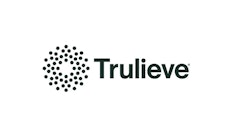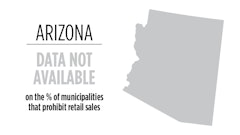
As the cannabis industry evolves and more states legalize, more players enter the game.
With an abundance of competitors vying for the attention of consumers, it's crucial to find unique and effective ways to differentiate yourself in this increasingly crowded market.
Ahead of her session at Cannabis Conference 2023, Lilach Mazor Power, owner of Mazor Collective, an Arizona-based vertically integrated cannabis company, shares several strategies and approaches to help your business rise above the noise and establish a distinct presence.
Lilach Mazor Power will speak at Cannabis Conference on the session: "20 Ways To Stand Out From The Competition" on Thursday, Aug. 17, from 1:30 to 2:20 p.m. In this session, experts will share implementable strategies with you on everything from creating the ultimate customer experience to inventory management to serve demand and keep customers coming back, pricing, experiential marketing, creative marketing tactics and loyalty programs, and more. Visit www.CannabisConference.com for more information and to register.
Andriana Ruscitto: How can dispensary owners effectively differentiate themselves from their competitors when faced with the challenge of multiple dispensaries opening in close proximity?
Lilach Mazor Power: I think the most important thing that dispensary owners need to answer is, who are you? Because you can have the same product and be completely different. I always give the example of a grocery store. We pick our grocery stores because they are different. They offer different things, and remember that it's not for everyone to choose by price. If you just compete by price, you have nothing left when there's [not another way] to lower pricing.
I think what's important is what are you and what are you offering beyond pricing that will attract your customers. Make sure you communicate that to your customers. For example, for us, we are an Arizona local business, women-owned, and 20% of our staff is veterans, and we make sure that we communicate that to our customers. So, people who care about those things will choose to drive another six minutes to support what we stand for.
The second thing is, as a small boutique store, the connection with the customers and the level of service we give is completely different. There are some [consumers] that don't care about that. They want the cheapest in-and-out option, right? Can they get it here? Yes. But that is not what we work so hard to be. So, every store needs to find its niche, which could be [the] dollar store [model]. That is a great business plan. There are a lot of very successful dollar stores, and if that's what it is, make sure you hit that and communicate that.
AR: What strategies can "border town" retailers employ to maintain their customer base or attract new customers, especially when a neighboring state legalizes cannabis and a dispensary opens just across the border?
LMP: I don't have much experience in that, but I think it's important to continue talking to those people that came to you. Make sure that your POS system (point of sale) can send newsletters or text your customers with specials on the product they purchase.
We do a lot of segmentations. So, people buying flowers versus those buying edibles or capsules, … and make sure we talk to them [individually]. When you have a person like a brand ambassador on-site, run a special, or have an educational piece, make sure you don't just become noise. Talk to [the customer] about what they're looking for. So that border store, if they know that Laura comes for an edible and she collects points, then you can say, “Hey, this weekend for July 4, we have a special on the edibles that you purchase, and also you have points, don't forget to come use them.” Talk to them about their birthdays. Make sure you create that unique conversation with your customers; people will continue to drive for that special feel.
AR: What are some key elements of creating an exceptional customer experience in a crowded cannabis market?
LMP: Your people, number one. Who you hire and how you train them to make sure they are the right people for the environment you are trying to create and that they [have] exceptional customer service, [and that] they know our job is to improve people's lives with cannabis, and that could be recreational or medical. It's not about pushing the wrong product to the customers, but [it's about] pushing the right product to the customers, and that creates that loyalty.
Number two is a unique self-process, which, to me, means listening. Then in your mind, run through all your product offerings and offer three options to the customers to not overwhelm them.
Then, segmentation. Ensure you are hitting the customers with what they want to hear from you. If your newsletter is just about sales and general sales, people will start deleting it. If you begin sending specific emails or texts about what each person is looking for, then they get the context that they want from you.
Number four, for us, it's been a lot of curated product offerings. You can't offer everything on the market; it's so oversaturated. You have to make sure that what you have on the shelves covers all price points and all categories without being too much of everything. So pick the top three [products] of every category in each price point instead of having 16 in every category.
AR: What pricing strategies and approaches have proven successful in generating consumer loyalty and repeat business in a crowded dispensary market?
LMP: Be competitive, but don't try to be the cheapest. People are actually looking for affordable but high-quality [products]. Silence the noise, even though [there's this race] to the bottom, know that as long as people know that they can come and get fair pricing at your store or that you have something always on sale, they will focus on everything around it, not just the sales rack.
When you go to any other store, yes, there is the clearance or sales rack or whatever, but you also browse around to buy other things. So in this market, yes, you have to be competitive, and yes, you have to be part of the, I call it, the shenanigans, which is the discount world, but don't just focus on that. Make sure you focus on the long-term value that you bring to the customer, that relationship, the right product for them, and the right pricing for what they can afford. If a person walks in and the first thing you offer them is the BOGO, you might be missing the fact that they are actually just looking for the most natural, high quality, high pricing [product].
AR: What inventory management techniques are useful to meet consumer demand?
LMP: Inventory management has become a challenge. So, there's so many new products and new brands in the market. You have to continue being on top of it and seeing where the demand is. Take emotions out of it of what you like or your relationship with the seller, and really listen to your customers.
It is also important to find the products that you choose and that you have a good relationship with the operator of that brand so they can offer things to your customers. For us, for example, it's important that they will support our veterans and our seniors. We do a lot of charity fundraisers, so [it's important that] they will want to be part of that. So really value-aligned brands.
The other thing is that as we dispense more, but for less pricing, to make sure that you don't overstock, you don't run out [of product], and make sure that that purchaser is using all the tools in their toolbox to make sure that they run [the inventory] very efficiently. … Your inventory management is what will make you or break you because that's where your money is. You have to treat your inventory as the most important asset for your connection with your customers.
AR: What is one thing you'd like attendees to take back to their business after your session this year at Cannabis Conference?
LMP: I would love people to pick the three to five things they can implement today that have nothing to do with pricing. To go back to their own companies with their own values, with their own culture, with their own location and say, “If we implement these three things, in the long run, we are going to be the one to build to last,” because just competing on pricing is not lasting; it's how people find themselves bankrupt or not being able to sustain a good business.
AR: Is there anything else that I missed that you think would be beneficial to add or include?
LMP: I think this is part of a cycle of any new industry. This is our chance to kind of pull our pants up and be an adult and understand that this industry, like any industry, has to evolve into unique business entities that stand for something beyond pricing.
This interview has been edited for length and clarity.

























